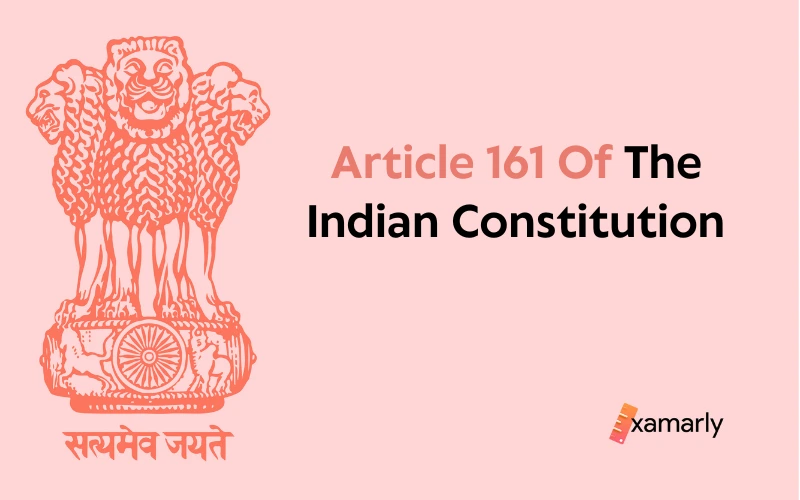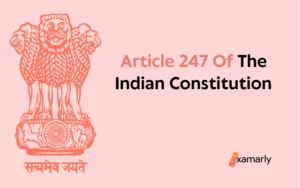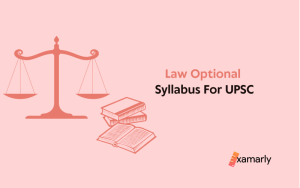The official executive leader of the state is a governor, who is chosen by the Indian President. The Indian Constitution grants the Governor a range of powers, which can be broadly divided into executive, legislative, financial, and judicial powers.
Pardons, commutations, and suspensions of sentences are all under the Governor’s judicial powers as cited in Article 161 of the Indian Constitution.
This article traces the evolution of the legal framework governing the use of pardoning power in India.
Article 161 Of The Indian Constitution: Pardoning Power Of Governor
The Indian Constitution grants the Governor the authority to commute, suspend, or remit sentences, as well as the right to issue pardons and other forms of clemency, according to Article 161 of the constitution.
The constitutional Provisions of the said Article are as follows:
Any person guilty of any offence against any law related to an issue to which the executive power of the State extends may get a pardon, reprieve, respite, or remissions of punishment, or their sentence may be suspended, remitted, or commuted.
Kinds Of Pardons The Governor May Issue
In a manner analogous to that of the President, the Governor possesses the authority to give pardons, which entitles them to the following privileges:
Commute
The ability to exchange a sentence that has been imposed on a person by the legal system for a lesser sentence is known as commuting a sentence.
The President of India has the ability to commute a death sentence, whereas the Governor is not permitted to do so.
He may, however, commute sentence of death, remit, or reprieve a death sentence that has been thus sentenced.
Additionally, he has the authority to reduce a convict’s sentence for an offense committed in violation of state law.
Pardon
Pardoning someone means stopping the legal process against them for their offence and allowing them to go free.
The Governor has the authority to vacate a convict’s conviction as well as their sentence, which releases them from their punishment and any disqualifications.
However, in accordance with Article 72, a Governor does not have quite the same scope of pardoning power as the President has.
The only person who can overturn a court-martial conviction or a death sentence is the Indian President.
In addition, pursuant to Article 161, the sovereign power of the government to grant pardons is exercised not by the Governor acting alone but by the state government.
Remission
By shortening the sentence imposed on the offender, the Governor may exercise his remitting authority granted by Article 161. The ability to remit, however, is exclusively applicable to shortening sentences; it under no circumstances changes the character of the punishment. For illustration, a three-year term of rigorous imprisonment may be reduced to a two-year sentence, but the type or character of the incarceration is still rigorous.
Reprieve
Reprieve, as used in law, is a term used to describe a temporary suspension or postponement of a criminal punishment or a delay in the court’s execution of a similar order. Article 161 of the Constitution gives the Governor the authority to grant a convict a temporary reprieve.
Respite
In its broadest sense, the word “respite” refers to the provision of a temporary period of relief. In terms of law, it alludes to the delay in sentencing. However, it in no way alters a judgment or answers a query regarding due process, guilt, or innocence. Under Article 161 of the Indian Constitution, the Governor of a State has the authority to grant a pardon to a convicted criminal, which may include reducing the individual’s sentence. Using this authority would be appropriate in cases when there is a compelling need, such as a pregnant inmate or a criminal with a physical disability.
The Governor has the authority to grant pardons as part of his judicial duties.
Difference Between Pardoning Power Of Governor And President
The Governor of a state has a slightly different set of pardoning powers than the President does.
| Pardoning Power of the President | Pardoning Power of the Governor |
| Article 72 of the Constitution bestowed such power upon the President of India. | Article 161 of the Constitution bestowed such power upon the Governor of State. |
| He has the authority to commute a conviction’s sentence imposed by a court-martial or military court. | It is outside the purview of the authority of the Governor. |
| In addition, the President retains the authority to pardon the death sentence through commutation or grant a pardon in its entirety. | Governor by using his authority of pardoning can 1. remit, 2. suspend, or 3. commute the death sentence of a convict. |
| To those convicted of violating a union law, he has the authority to give clemency. | His pardoning authority is conferred in situations where the criminal breached a state law. |
| The scope of his / her pardoning is wider. | The scope of his / her pardoning is narrower compared to that of the President. |
Similarity Between Article 161 And Article 72
The power to grant pardons is the focus of both Article 72 and Article 161, but there is a key distinction between the two in that the former article conferred this authority on the President, whilst the latter article made it available to the governor of any state.
Both the President and the Governor of any State have the authority to grant a pardon to someone who has been adjudged to have committed a crime while in actuality he has not. Therefore, they have the authority to spare them from punishment, provide them justice, and restore their respectable existence in society by clearing them of any wrongdoing associated with the crime in question.
Judgments
Epuru Sudhakar v. State Of A.P. (2006)
For the murder of a political rival, the convict, in this case, was given a death sentence, and the Andhra Pradesh High Court later upheld this verdict. The Supreme Court eventually overturned the pardon the Governor had issued to the accused. Any use of the pardoning power by the Governor that can be shown to have been driven by caste, religion, or politics will be overturned, the Court ruled. The decision to grant a pardon by the President or Governor may be challenged if it was made arbitrarily, without due consideration, with malicious intent, or in light of factors that are wholly unconnected to the issue at hand.
Swaran Singh v. State Of U.P. (1998)
In this instance, the Governor of Uttar Pradesh remitted the life sentence that had been given to the Minister of a State Legislature and a few other defendants who had been convicted of the murder of one Joginder Singh.
The order issued by the Governor was halted by the Supreme Court, which held that although it is true that it does not have the jurisdiction to meddle with an order made by the Governor in line with Article 161, it must intercede where that authority has been used arbitrarily, in bad faith, or with utter disrespect for the “finer cannons of constitutionalism.” Furthermore, it was noted that a statute could not be approved for such an order and that in situations like this, “the judicial hand must be stretched to it.”
Perarivalan Case
In this particular instance, Perarivalan was found guilty of murdering former Prime Minister Rajiv Gandhi and was given the death penalty for his crimes. These crimes included violating
- the Indian Penal Code,
- the Arms Act of 1951,
- the Explosive Substances Act of 1908,
- the Foreigners Act of 1946,
- the Wireless Telegraph Act of 1933,
- and the Terrorist and Disruptive Activities (Prevention) Act of 1987.
In the year 2014, the Supreme Court of India decided to change the terms of his punishment from death to life in prison.
A petition filed in accordance with Article 161 of the Indian Constitution was put on hold for approximately two and a half years after the suggestions of the State Cabinet for the remission of his punishment, and it remained to be put on hold after that.
Later, the Supreme Court of India issued an order for his release under Article 142 of the Indian Constitution and concluded that the State Cabinet’s recommendation to pardon Perarivalan was obligatory on the Governor under Article 161 of the Indian Constitution.
Conclusion
In the Indian Constitution, the Governor is given extensive authority that can be categorized into four groups: executive, legislative, financial, and judicial. One such authority that the Governor of State enjoys is the power to pardon the people which is articulated in Article 161. The authority granted to the Governor under Article 161 of the Indian Constitution to commute a sentence for a criminal offender is a constitutional duty, much like the authority granted to the President under Article 72 of the Indian Constitution. As such, it is a constitutional responsibility rather than a right or privilege.
FAQs On Article 161
Can The Governor’s Decision To Award A Pardon Be Contested?
The decision of the Governor to grant a pardon can be challenged in court if it was decided arbitrarily, without due consideration, with mala fide consideration, or with reference to facts that are wholly unconnected to the case that is currently being heard.
How Does The Power Outlined In Article 161 Differ From The One Implied By Article 142?
When compared to Article 142 of the Indian Constitution, Article 161’s reach is larger.
In a very narrow context, the power inherent in Article 161—namely, the authority to halt punishment while the case is under appeal—is also stated in Article 142. Thus, to avoid a power struggle, article 161 does not discuss the suspension of penalty while article 142 is in force and the issue is pending.
What Is The Purpose Of Pardoning Power
1. In situations in which an innocent person might be sentenced to punishment or in which the person was wrongfully convicted of a crime, a pardon could be of considerable aid.
2. The possibility of being granted clemency in and of itself serves as an incentive for the inmate to behave appropriately and makes a sizeable contribution toward the solution of the issue of disciplinary dysfunction within the prison.
3. It is always preferable to grant freedom to a criminal rather than to punish someone who is not responsible for their actions.
4. As a result of the inherent fallibility of all human-operated judicial administration systems, the power to grant pardons serves the function of rectifying any errors that may have been made by the court.
Why Should Someone Be Granted A Pardon?
If it is judged that a person has fulfilled their responsibility to society or if they are considered worthy of a pardon for some other reason, they may be granted a pardon. Pardons are granted on occasion to convicts who either believe they were mistakenly convicted or who was the victim of an unfair trial and conviction. People may often look to pardons as a tool to combat corruption by sidestepping what they perceive to be an unfair legal system and freeing an individual from prison who they think was wrongfully convicted.
How Pardoning Power Overrides Section 433A?
The Supreme Court ruled on August 3, 2021, that a state’s governor has the authority to pardon inmates, including those on death row, even before they have completed at least 14 years of a prison sentence. The new ruling on the governor’s pardon authority nullifies Section 433A of the Code of Criminal Procedure, which states that a prisoner’s sentence can only be commuted after serving 14 years in prison.
What Is Pardoning Power?
The term “pardon” is also sometimes referred to as “clemency,” “grace,” or “mercy,” and it is referenced in the constitutions of many countries.
A pardon is a prehistoric idea of grace, kindness, or forgiveness that was historically employed by the British Crown to either pardon and absolve someone convicted of a crime or to punish them. In accordance with Articles 72 and 161 of the Constitution of India, both the President of India and the Governor of each individual state have been granted the authority to grant pardons






